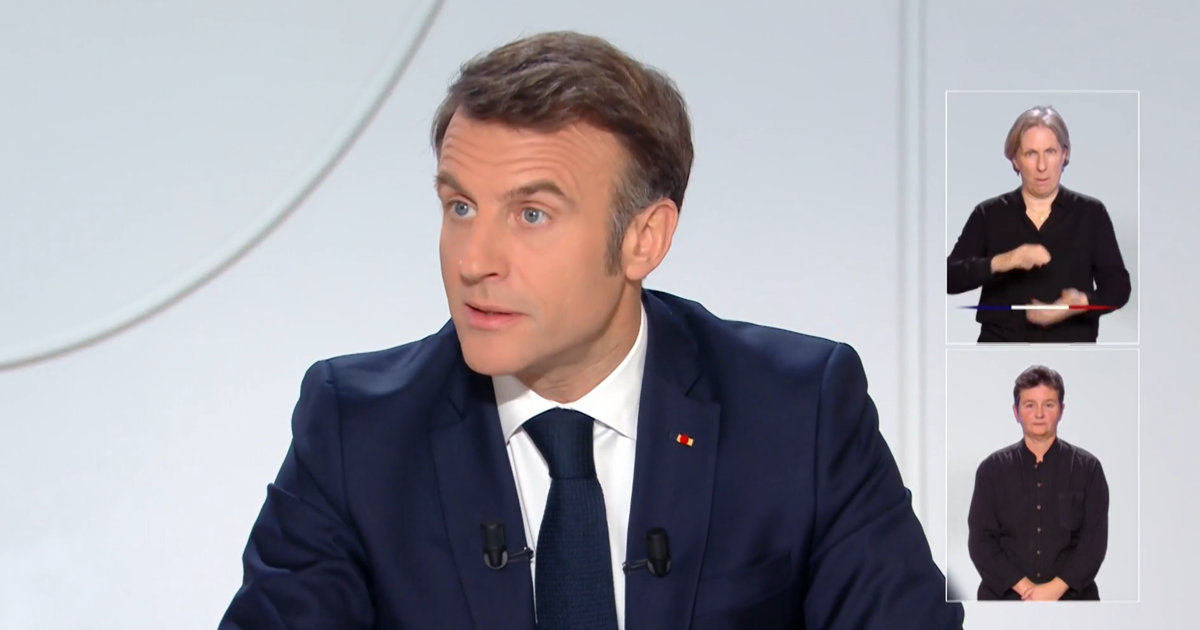Emmanuel Macron is giving himself 100 days to calm things down in a France in crisis over the unpopular pension reform, which came into force this weekend and will begin to be applied in the autumn.
In a televised address to the nation, the French president vowed to draw lessons from popular anger that has led to raising the retirement age from 62 to 64.
And he offered the unions and employers to negotiate a plan to improve working conditions.
One of these lessons is that the French are reluctant to extend their professional lives because many are unhappy at work.
Macron admitted: "An anger has been expressed, an anger at a job that does not allow too many French people to live well, at rising prices."
But the lack of specificity in the measures and the frustration left by a reform imposed against the will of the majority of French people will complicate the president's goal for the coming months: to launch a "new pact for life at work."
The pact, negotiated "without any limit or taboo" with the social agents, should serve to "improve the income of wage earners, advance careers, better share wealth, improve working conditions, find solutions to professional usury and make increase the employment of
seniors
and help professional recycling”.
Laurent Berger, general secretary of the CFDT reformist union, reacted on BFMTV: "There is a gap in the intervention of the President of the Republic: there is nothing for the workers who will have to work for two more years."
The unions have rejected his invitation to meet with him on Tuesday at the Elysée Palace and have met on May 1 for a day of massive demonstrations.
Coinciding with the president's speech, several casseroles were called —300, according to the NGO Attac— in front of town halls and prefectures in various cities in France.
The intervention, from the Elysee Palace, had been recorded in advance.
“We have 100 days ahead of us for calm, unity, ambition and action at the service of France,” Macron concluded the 14-minute speech, after listing the priorities between now and July 14, the National Holiday. .
The 100 days are a symbolic term, which is usually granted to new governments.
This time, he symbolically grants it to his prime minister, Élisabeth Borne, on the tightrope after the hectic approval of the pension reform.
And he gives them to himself, as if he wanted to restart his presidency after being re-elected just a year ago.
The president wanted to take advantage of the speech to try, first, to reconnect with the French.
About 70% are against raising the retirement age.
His popularity has fallen to 28%, according to a recent Ipsos poll, which is broadly in line with other institutes.
It's not the lowest level of his presidency.
At the end of 2018, with the
yellow vest
revolt , it fell to 20% and then recovered.
His predecessor, the socialist François Hollande, fell even lower.
"It is evident that this reform is not accepted"
“Is this reform accepted?
Obviously not," Macron replied to himself in the speech.
And he added: "I'm sorry."
He then admitted: "No one, not even me, can be deaf to this demand for social justice or for the renewal of democracy, particularly expressed by our youth."
And he added: "You have to extract all the lessons."
Riots in Paris after the speech of French President Emmanuel Macron on the occasion of the pension reform.STEPHANIE LECOCQ (REUTERS)
Macron outlined three major issues that, in his opinion, should guarantee France's strength for the next decade: work, justice and republican order, and progress in education, health and the environment.
He linked these issues to the idea of independence for the country and Europe.
This was another objective of the speech: turning the page on the biggest political crisis since the
yellow vests
,
setting new objectives and reaching out to the unions and opposition deputies willing to support him in some laws.
You won't have it easy.
The Government, in turn, trusts that Labor Day will be the last cartridge of the movement that began on January 19, after the Prime Minister presented the bill.
Since then, France has lived in permanent tension in Parliament and on the streets.
The text was adopted by decree in March, after failing the motions of censure that would have annulled the norm.
Last Friday, the Constitutional Council ruled that the bulk of the law complied with the Constitution.
The president promulgated it and on Saturday it was published in the Official Gazette.
Macron's televised speech comes almost a month after his last televised intervention, an interview on the 1:00 p.m. news on the TF1 and France 2 channels. President, "I choose the general interest of the country, and if unpopularity has to be assumed today, I will."
The Government had just imposed the reform by resorting to an article of the Constitution that allows the vote of the chamber to be avoided, and two days before it had passed the motions of censure.
The Constitutional Court had not yet ruled.
Since the ruling of the high court, there have been four days of strikes and demonstrations;
The rejection of the reform has not weakened.
Follow all the international information on
and
, or in
our weekly newsletter
.
Subscribe to continue reading
Read without limits
Keep reading
I'm already a subscriber









